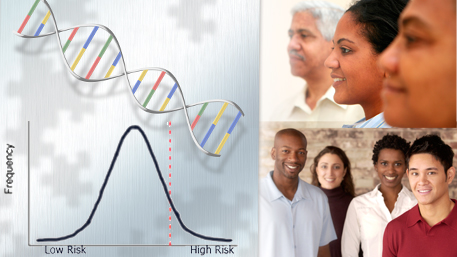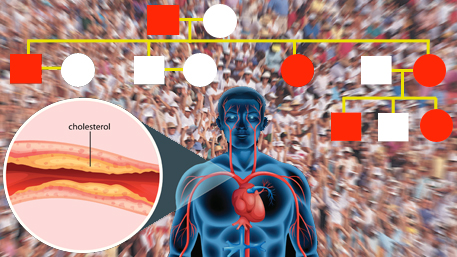Category: population
Fulfilling the Promise of Epigenetics Requires More Studies in Diverse Populations

Two recent articles, one in Nature Genetics and another in Genome Medicine, report the lack of racial and ethnic diversity in epigenetic research. This needs to change in order to fulfill the promise of epigenetics as a tool for health equity science. Health equity is the state where everyone has a fair and just ability Read More >
Posted on byThe use of polygenic risk scores in clinical practice can exacerbate health disparities in ethnic and minority populations

This blog is a summary of our recent commentary on polygenic risk scores (PRS). PRS provide a rapidly emerging example of precision medicine and are based on multiple gene variants that each have weak associations with disease risks, but collectively may enhance disease predictive value in the population. The added value of PRS is unclear Read More >
Posted on by 1 CommentContributions of Public Health in Reducing the Population Burden of Familial Hypercholesterolemia: Challenges and Opportunities

In October 2018, we attended the fifth annual Global Familial Hypercholesterolemia (FH) Summit. This gathering of more than 300 people from over 30 countries included patients, researchers, government organizations, practitioners, health systems, implementation science experts, and industry. The event focused on methods for accelerating uptake of evidence into clinical practice and health policy. The event Read More >
Posted on by 1 CommentConsumer Genetic Testing Is Booming: But What are the Benefits and Harms to Individuals and Populations?

Initially a Niche Market for Very Few with Small Population Impact The first genetic tests directly available to consumers for health were offered in 1996. The concept, then, was both audacious and bold: the idea that individuals could explore their own human genome without the aid of a health care provider to order the test Read More >
Posted on by 3 CommentsGenomics and Obesity: We Need Both Population and Individualized Approaches in the Prevention and Management of Obesity

Obesity is a serious, global public health problem that has increased markedly in the last few decades. As of 2016, 795 million people were estimated to have been affected. Obesity is associated with leading causes of death worldwide—such as diabetes, cardiovascular disease, and cancer—making the search for effective weight management strategies a global priority. Obesity Read More >
Posted on by 2 CommentsProgress in Public Health Genomics Depends on Measuring Population Level Outcomes

Public health genomics is a relatively young field concerned with the effective and responsible translation of genomic science into population health benefits. In the past few years, the field has witnessed the emergence of several state public health genomics programs beyond the traditional domain of newborn screening. The field has focused on preventing disease and Read More >
Posted on by

